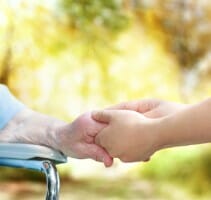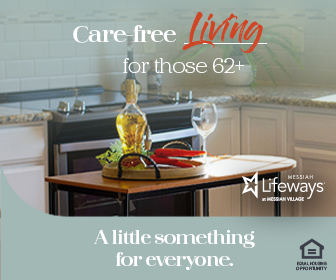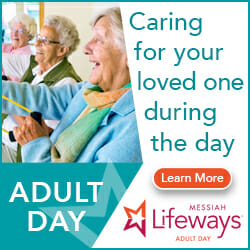Serving as a caregiver for an aging loved one or parent is an incredible act. According to the Alzheimer’s Association, in the U.S., there are as many as 44 million¹ unpaid caregivers performing these incredible acts every day for someone over the age of 50. That is a huge mass of people serving the needs of an ailing spouse or loved one, where you will find lots of heartwarming, courageous and selfless caregiving stories. You’ll also hear stories of burnout, frustration and despair. Anyone who’s served as a caregiver for a significant amount of time can tell you that it can be wonderful yet woeful, and joyous and painful all at once. It’s assuming a lot of responsibility, which can be unfamiliar and often uncomfortable from handling their finances to helping a parent bathe or get dressed. It’s also a time to discover your own altruism or rekindle the bond between parent and child or between a husband and wife.
I’ve connected with hundreds of caregivers throughout my career including family, friends, but mostly through experiences at work. They hold a special place in my heart. Several years ago I helped develop a workshop created to help caregivers who were stressed and overwhelmed. The goal was to help this constant cycle of individuals avoid burnout and find options and resources to make the task of caregiving for an older adult easier and more manageable.
Everyone Is a Potential Caregiver
In the book “What to Do about Mama?” authors Barb Matthews and Barbara Trainin Blank exclaim, “Everyone is a potential caregiver.” So whether you have, are or will be a caregiver at some point in your life you can expect the highs and lows of this process. As you begin to read articles or books like “What to Do about Mama” you begin to see patterns and statistics that paint a very taxing picture. Over two-thirds of caregivers are women, many of whom are in the “sandwich generation,” which means they are caring for a parent or loved one while simultaneously caring for their children. Caregiver.org also states that anywhere from 40-70%² of caregivers suffer from various stages of depression. It also takes its toll on physical health, relationships, and work. Juggling all this can lead to burnout.
However, there is hope. There are a multitude of books, online resources and workshops like the one Messiah Lifeways Coaching offers to help caregivers avoid burnout. One of the most fundamental tools to elude burning out is taking care of YOU. Simply put – you cannot care for someone else if you yourself are ailing or worse. The comparison is often made to being on an airplane, and oxygen masks descend during an emergency. The rule is to place your oxygen mask on first and then assist those who need help. It’s a simple concept, but quite often forgotten.
Another important choice is seeking and accepting help from others. So often, women especially, think they can run all of mom’s errands, provide her the care she needs and drop in all hours of the day without the help of anyone else. It’s noble, but can be quite foolish as well. Ask others for help or hire help, plus take people up on their offers to help because eventually they may stop asking.
Caregiver support groups are also a very valuable asset in the effort of avoiding feeling overwhelmed, depressed or inadequate. They serve as great outlets to gain support from those who know what you’re going through. It’s a time to share, laugh and cry, to console, validate and commiserate. Jeanne McClintick RN, CHLPN from Hospice of Central Pennsylvania, runs several local caregiver support groups and shares wonderful supportive stories between members. She also states many participants continue to attend these groups even after the person they care for passes. It’s a way for them to heal and to help others new to the caregiving arena. So whether you chose to be or are thrust into the position of caregiver, do not take it lightly; however, do not fret. Remembering some of these tips along with other resources and insight can make it a better situation for all involved.
For more caregiver support and resources read “What to Do about Mama?” or visit caregiver.org or alz.org. If you’d like to attend The Caregiver Solutions Workshop on September 22, 2015 at the Carlisle Brethren in Christ Church, call 717.591.7225 or go to MessiahLifeways.org/Events.






